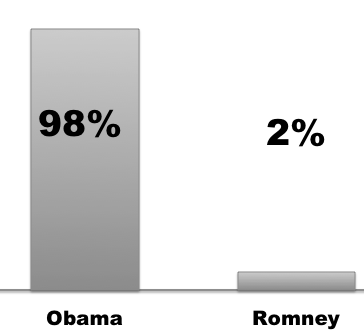Young voters demand dynamics, not details
 Last Wednesday night, my Facebook news feed blew up with an intensity only rivaled by angry Packers fans’ gruesome threats. However, the Facebook population was not speaking out to protect the sanctity of the All-American sport, but the All-American entertainers: the presidential candidates.
Last Wednesday night, my Facebook news feed blew up with an intensity only rivaled by angry Packers fans’ gruesome threats. However, the Facebook population was not speaking out to protect the sanctity of the All-American sport, but the All-American entertainers: the presidential candidates.
One particularly distraught Facebook friend posted, “Ugh. I’m already wanting to hang myself with a stopwatch cord. Can we go back and pick Newt Gingrich and Bill Clinton instead? THAT would be worth watching.”
Although lackluster, hanging oneself with a stopwatch because a presidential debate lacks spark seems both melodramatic and impractical. However, voter’s demands for dynamic candidates were articulated loud and clear, not only after Obama’s disappointing performance, but during, as Twitter updates flashed across the bottom of the screen throughout the debates.
Discontent with President Obama’s performance was voiced via social media as a means of civil dialogue, indicating that young voters have higher expectations for candidates and have found new venues to make their demands, criticisms and voices heard.
Obama, the 2008 version, was his worst enemy: articulate, passionate, engaging, not a tired version of himself from running the country for four years. Wednesday’s listless and defeated Obama probably hates that charming young man for setting his standards so high.
However, Romney was also illustrating his self-transformation, finding moderate ground on a lot of issues and displaying facts. Conan O’Brien tweeted during the debate, “Romney prepped for tonight’s debate by debating with a man whose views differ radically from his own: himself from 8 years ago.”
However, because of Romney’s previous performances, voters were impressed by his use of any evidence at all as well as his humanizing performance. Because we expected Obama to spin gold with his words and give us undeniable hope that he was our savior, viewers were inevitably disenchanted.
As a result, the younger generation, composed of those who vote for the candidate they would most like to have a beer with, flips off the TV and feels the world darken with the screen. This disappointment raises an important question: Why must a candidate portray himself as a personable superman with an affinity for beer? If viewers had examined the facts presented in the debate, rather than the American dream fairytale, a much more productive political dialogue would have filled Twitter feeds and Facebook walls.
As the presidential election season reaches its most important and most entertaining point, we as young voters must stop viewing election events as a spectacle and start viewing them as political venues. The next three debates will never rival the heroic characters in the latest Jersey Shore season or the cat fights on The Bachelor.
However, just because Obama didn’t get into the scrappy debate over Romney’s 47% comment doesn’t mean we should deny him a rose at the end of the night.
Next debate, I encourage you to close your computer, ignore the Twitter feed at the bottom of the screen, and listen to the arguments presented on both sides, regardless of whether or not you could imagine grabbing lunch with either candidate. Both parties focused on significant election issues.
A closer analysis of Obama’s performance reveals strong language, strong evidence, and ultimately, a strong commitment to the American population.
